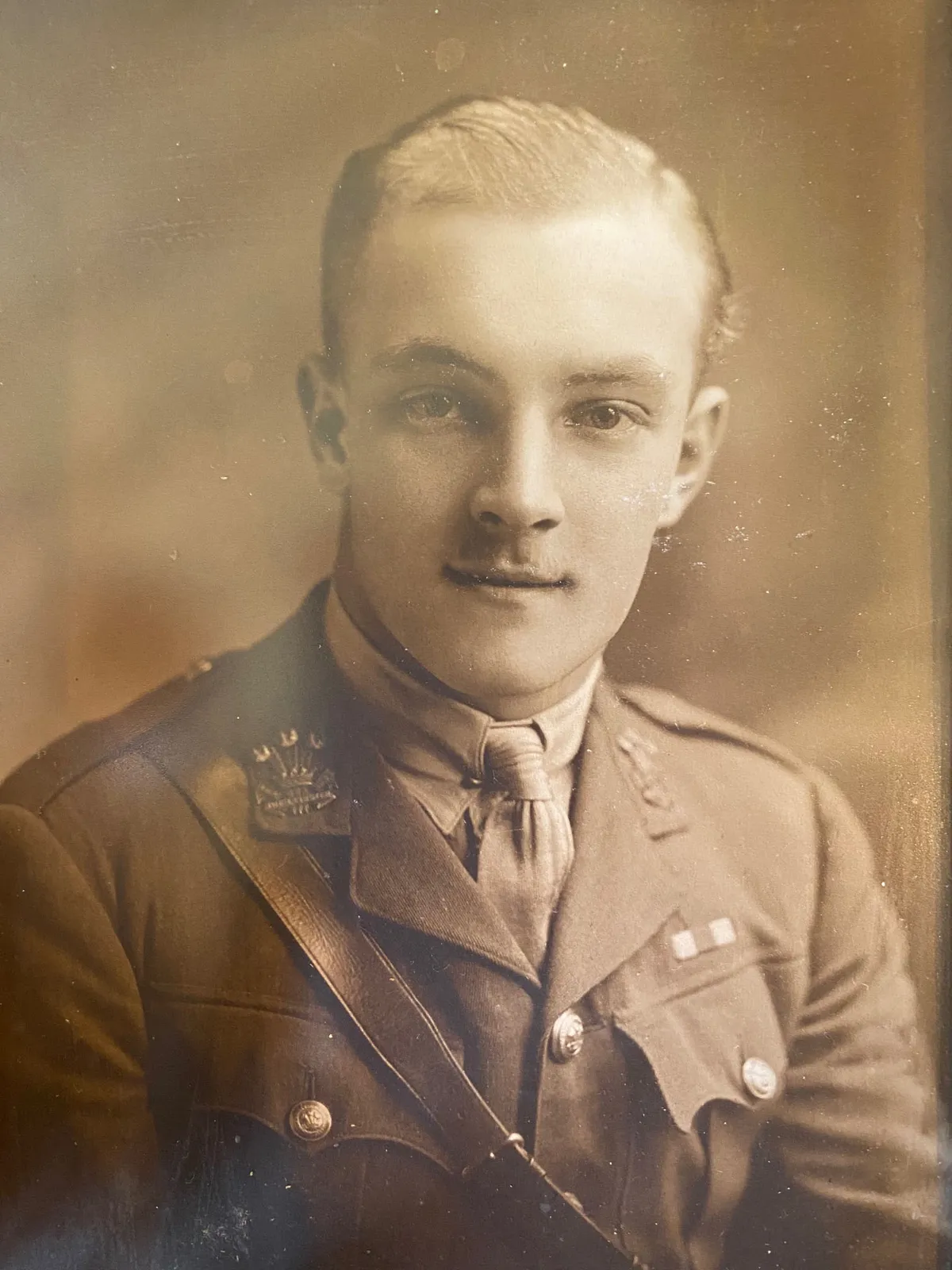Oscar-winning actor Dame Judi Dench has been a star of stage and screen for seven decades – but as she explains at the start of her episode of Who Do You Think You Are?, she’s particularly passionate about William Shakespeare, ever since she made her debut playing Ophelia in Hamlet. “I would like to meet him,” she says, “then I would like to say ‘Are there any other plays up your sleeve? Have you anything for anyone in their eighties?’”
Judi grew up in York but her parents met in Ireland. She knows that her father Reginald, a doctor, fought in the First World War and got “a badge” for bravery, and she wants to find out more about him.
After looking at Reginald’s photograph and his medals, Judi goes to Dublin to visit her cousins Denis and Valerie, and then to the Military Archives of Ireland to meet historian Lar Joye. Lar tells her that Reginald underwent officer training at Trinity College, where we would have learned the importance of looking after his men. Reginald’s records also show that he suffered a knee injury during training.
Looking at Reginald’s medals, Lar points out that Reginald was given the Military Cross twice – a very rare honour that he would have received for exceptional courage.
At Trinity College, Judi finds out more about her father’s service from military historian Peter Barton. She discovers that Reginald narrowly avoided being sent to fight in the Battle of the Somme because he was recuperating from surgery on his knee. However, he did fight at Ypres in 1917, where he received his first Military Cross for holding his men together and fighting off a German raid on their trench. His second Cross was for leading a raid on the enemy trenches, where he shot a German soldier and ensured his men got back safely. Reginald’s knee injury also saved his life again, when he was sent back home shortly before the 1918 Spring Offensive, in which every officer in his battalion was lost.

In Christ Church in Sandymount, where Reginald is commemorated on a war memorial, Judi reflects on her father’s experiences: “When you think how completely life-changing those experiences were, I’m not sure that you could live in the past. I think you’d want to push that away from you a bit.”
Next, Judi turns her attention to her mother’s family. She meets genealogist Nicola Morris, who tells her that her 6x great grandfather Richard Bolton married a Danish woman called Anne Catherine Bille. However, letters show that Richard’s friend Robert Molesworth opposed the match because of Anne Catherine’s “want of fortune”.
The next stop on Judi’s journey is Copenhagen, where she meets her Danish distant cousin – and fellow actor – Joen Bille. She learns that Anne Catherine’s father, Steen Andersen Bille, was the illegitimate son of a nobleman, Anders Steensen Bille. He wasn’t allowed to inherit his father’s title, but he was still an influential figure, as shown by the high-ranking military officers who were witnesses at his daughter’s baptism.
Judi discovers that Steen achieved his powerful position by supporting King Frederick III in a 1660 rebellion to seize power from the aristocracy. He was rewarded by being permitted to use his father’s coat of arms.
Taking her family tree further back, Judi finds out that her 10x great aunt was Beate Brahe, the mother of famous astronomer Tycho Brahe. Not only that, but Beate was a lady-in-waiting to the Danish royal family at Kronborg castle in Helsingør – made famous by William Shakespeare as Elsinore, the setting of Hamlet.
Judi is delighted to visit Helsingør, where she meets Dr Anne Sophie Refskou, who tells her that there’s evidence that Judi’s family inspired Hamlet. Tycho Brahe was descended from families called Guildensteren and Rosenkrans – names which appear as Rosencrantz and Guildenstern in Shakespeare’s play. Brahe’s motto was “Non haberi sed esse” (‘Not what seems, but what is’), which reflects a line in Hamlet: “Seems, Madam? Nay, it is.” And William Kempe, an actor who worked with Shakespeare, visited Helsingør before Shakespeare wrote Hamlet.
“It’s just been an extraordinary adventure,” Judi says. “It’s like starting a play not knowing your part in it, and suddenly you find at the end you’ve fetched up in Elsinore. I feel as if there’s a hand reaching across a lot of ages to maybe touch William Shakespeare.”
Rosemary Collins is the staff writer of Who Do You Think You Are? Magazine
